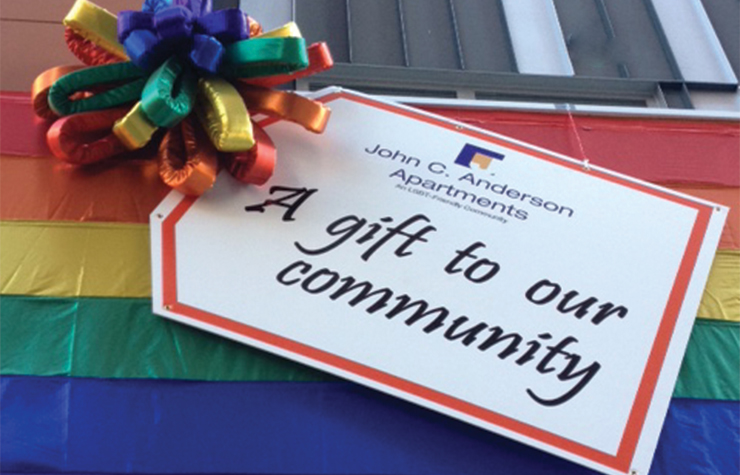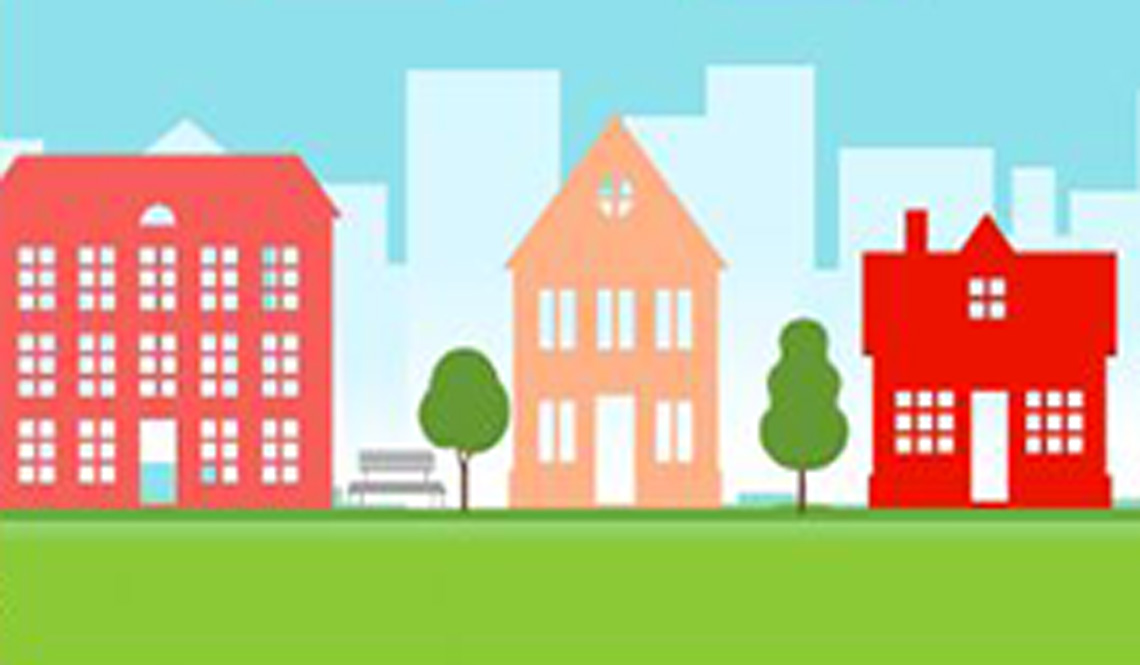AARP Hearing Center
Many organizations and service providers that work with older adults don't have much experience with older people who are lesbian, gay, bisexual or transgender. As a result, when older adults who are LGBT fear or encounter discrimination, or receive subpar treatment from health and elder care providers, it can lead them to avoid medical care or hide their sexual orientation or gender identity.
That's troublesome for both individuals and society-at-large since an estimated three million LGBT adults in the United States are now age 65 or older, and that number is expected to double by 2030.
About SAGE
Services and Advocacy for GLBT Elders (SAGE) was founded in 1978 by a small group of lesbian, gay, bisexual and transgender activists who recognized that LGBT people did not have the supports they needed to age in good health and with financial security.
The SAGECare program was established in 2010 to provide cultural competency training to health care and elder care providers.
Cultural Competency
According to a definition by the U.S. Department of Health and Human Services, "cultural compentence" is defined as "having the capacity to function effectively as an individual and an organization within the context of the cultural beliefs, behaviors and needs presented by consumers and their communities."
In 2010, the nonprofit Services and Advocacy for GLBT Elders — more commonly known as SAGE — was awarded a contract from the federal government to develop a national "cultural competency" training program (see box) for care providers who work with elderly LGBT clients.
The expansion of that program, SAGECare, now trains residential health care providers, government agencies that offer program funding, home health care and hospice companies, and nonprofits (including AARP and the Alzheimer's Association) that work with and advocate for older adults.
"When providers can understand the pervasive stigma and discrimination folks they're serving have lived through, it's a very powerful emotional lesson and truly eye-opening," says Hilary Meyer, founder of SAGECare. "It creates a sense of motivation to improve the care they provide."
Since the program's launch in 2011, more than 13,000 people — representing all 50 states — have received the training.
How SAGECare Works
Employees in senior care settings participate in trainings where they learn about the unique history and needs of LGBT older adults, hear personal stories and receive information about the legal rights of their clients. SAGE also shares best practices for fostering an LGBT-welcoming environment.
Among the training courses offered by SAGECare:
- "Creating Inclusive Communities for LGBT Older Adults"
- "LGBT Older Adults and Housing"
- "Transgender Aging: What Service Providers Need (and Don't Need) to Know"
- "Improving Aging Services for LGBT Older Adults"
- "The Psychosocial Needs of LGBT Veterans"
The courses are offered in-person or online. Fees vary, ranging from free (for organizations that receive grants) to about $800 for a one-hour training and $2,500 for four hours. Care agencies can earn a SAGECare national credential certifying that its employees have received sensitivity training.
Lessons Learned
Meyer says that after completing the SAGECare course, agencies have taken specific steps to be more sensitive to their LGBT clients and residents.
One simple strategy, she says, is to train staff in asking open-ended questions about a person's relationship status. For instance, rather than assuming someone is heterosexual or married, single or divorced, a staffer will say, "Tell me about the most important person in your life." Some senior communities now include sexual orientation and gender identity on intake forms.
SAGECare also suggests that training participants take a hard look at their websites and marketing materials to ensure that they're LGBT-welcoming. This can be achieved by including a photograph of a same-sex couple in a brochure or online, or by the type of programming that's offered, such as an LGBT support group.
"We have both qualitative and quantitative information showing that these trainings are making a difference," says Meyer. "Agencies tell us about concrete actions they've taken that have improved life for their clients. They're excited about what we're doing and understand why it's important."
SAGECare "Graduates"
By the end of 2016, more than 130 agencies had been SAGECare credentialed. The designation must be renewed annually.
Since 2013, The New Jewish Home, a large New York City-based geriatric care system, has required that everyone on staff, from the CEO to custodians, take the SAGECare training.
"Working with SAGE has increased our staff's awareness of the unique life experiences, needs and preferences of our LGBT residents and clients," says Tammy L. Marshall, chief experience officer for The New Jewish Home. "It's also broadened our understanding of the many other diverse populations we serve."
As a result of the training and having a better understanding of the LGBT demographic, The New Jewish Home made changes, including the following:
- Staff that had previously denied nail polish to a male resident in long-term care began to provide and help apply it.
- Employees who continued dressing a male resident in hospital gowns even though his partner had provided them with preferred nightgowns, began to use the nightgowns.
- A male resident who wanted to be called by a female name and referred to by the pronoun "her," now is.
Meyer quotes an elderly LGBT woman who lives in a care facility saying, "As I live out the rest of my days here, I'd like to feel comfortable just being who I am."
Cultural competency training for elder care providers helps make that simple wish more possible.
Sally Abrahms writes about caregiving, baby boomers, housing, retirement and aging-in-place topics.
Published December 2016
Welcome Home
Several cities are working to provide affordable senior housing that, while open to all qualifying older adults, is promoted as being "LGBT-Welcoming." Typically established by private developers or public-private partnerships, these apartment buildings and complexes provide one of the many housing options needed for older adults and, in particular, older LBGT adults.


More About Age-Friendly Housing
- Home Sharing: A Win-Win for the 50+
- Two Houses in One for a Home Within a Home
- Take a Tour of a "Lifelong" Home
- How to Encourage More Lifelong Housing
- 5 Questions About the "Not So Big House"
- 20 Questions About Co-Housing
- 21 Age-Friendly Remodeling How-To's
- Tiny Houses are Becoming a Big Deal
- Model Policy for Accessory Dwelling Units
- How to Make Land-Use Policies Better for Women, Families, Caregivers and Older Adults
- AARP HomeFit Guide
- AARP Livability Library: Housing



































































